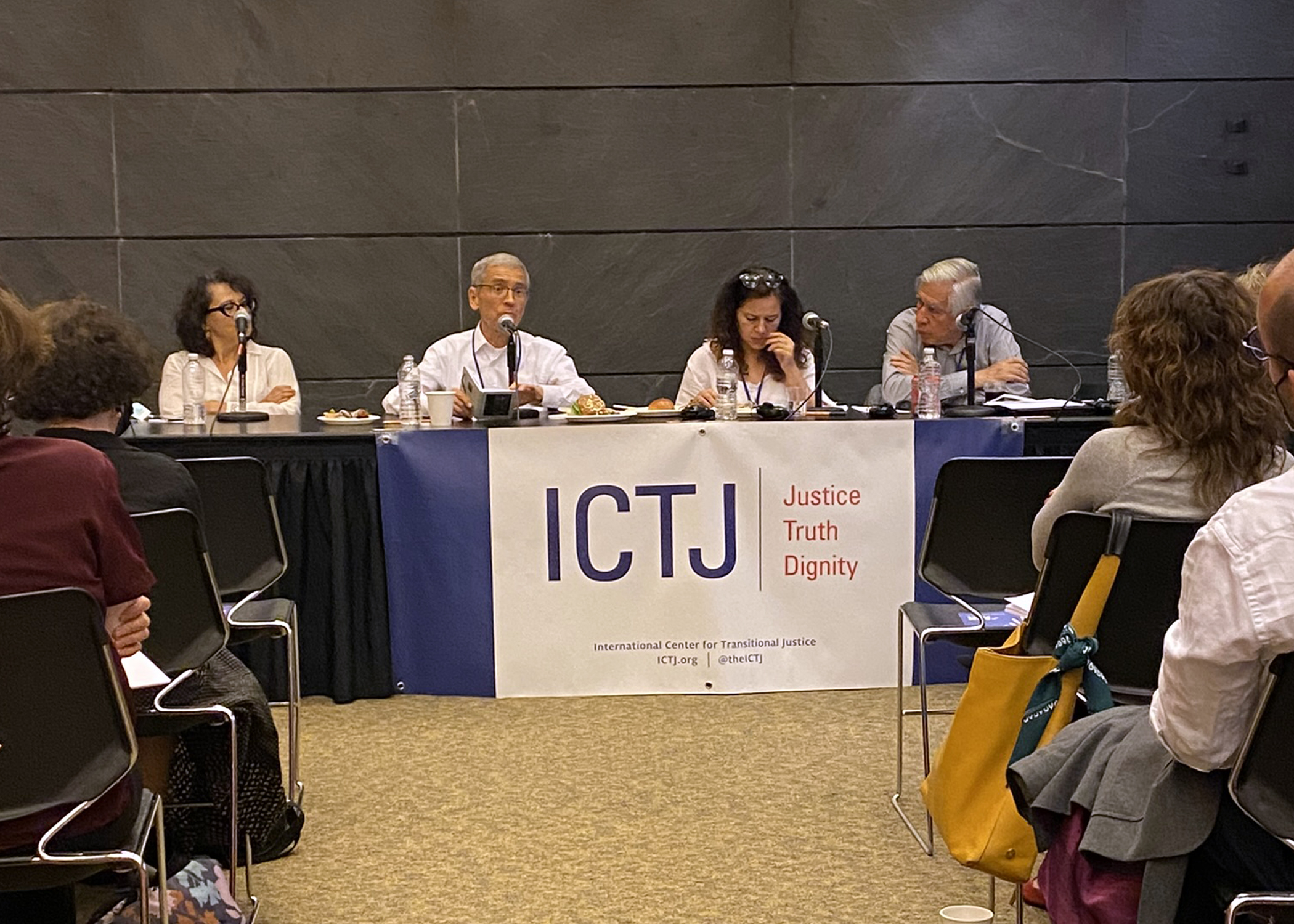With the inauguration of Colombia’s new president last month, optimism for the country’s ongoing transitional justice process is at a high. Newly elected President Gustavo Petro has strongly affirmed his commitment to the implementation of the peace agreement and ensuring the institutions it created, including the Truth Commission, the Special Jurisdiction for Peace, and the Unit for the Search of Disappeared Persons, have the support they need to complete their work.
The president of Colombia’s Truth Commission, Father Francisco de Roux, shared in this optimism when, on July 14, 2022, he traveled to New York to brief the UN Security Council and the UN Secretary-General on the commission’s findings and recommendations. Earlier in the summer, and after its mandate ended, the commission issued its final report. Addressing the council, de Roux described the history and magnitude of the war in Colombia, the scope of the commission’s work, and the steps needed to address the legacy of such violence.
“More than 10 million people have been affected in various ways by this war, and 80 percent of all those affected, both survivors and victims who did not survive, were not soldiers or guerilla fighters, but the unarmed civilian population,” de Roux explained. “War is always against the civilian population.”
Over the course of its mandate, commissioners heard more than 30,000 testimonies, “from all sides in a divided country,” and read more than 1,000 reports from communities. “We have not limited ourselves to listening,” he continued, “we have sought answers to the questions of why this happened, and what were the effects, on people, on the environment, on democracy, who caused it, and what can we do so that it doesn't happen again."
The UN Security Council voiced its support for de Roux, the commission, and Colombia’s transitional process more generally, highlighting the efforts made to re-integrate former combatants, as well as to protect them and Indigenous, Afro-Colombian, and other social leaders, who continue to be the targets of violence. De Roux concluded by saying he hoped that “the lesson of Colombia will distance us from wars on all sides forever, and leads us to passionately search for truth, and the dignity of the human being. For Colombia and for the world, there is a future if there is truth.”
Following his visit to the United Nations, Father de Roux joined his fellow commissioners Alejandra Miller, who drafted the final report’s chapter on gender and LGBTQ issues, and Saul Franco, who drafted the chapter on the impact of violence on Colombian society, for an ICTJ-organized panel discussion on the commission’s work, findings, and recommendations.

Miller, a longtime feminist and community leader, summarized some of the commission’s findings. “One of the most important findings has to do with culture,” she said. “Sixty years of war has left deep cultural marks. The war doesn’t happen in an empty society. It happens in a patriarchal, racist, colonialist society. But the practice of war exacerbates these forces.”
Franco, who is a medical doctor and an academic, described the war’s impact on life in Colombia. “Life has been a serious victim of war, not just given the number of dead, which is important, but because of who died, by and large civilians,” he explained. “Who in Colombia can have peace if a loved one has disappeared? When will they be able to sleep in peace? This is in itself an alternation of life. It is not just a psychiatric pathology, but it is a damage to quality of life, to the conditions of life, to the enjoyment of life.”
He then presented on the final report’s recommendations and how the commissioners developed them. “We didn’t just make up the recommendations,” he said. “We received 10,000 recommendations from people, from every region and group. We summarized these recommendations into 75.” According to Franco, among the most important recommendations are those related to demilitarization. “The country must say a firm no to war. That means we must remove weapons from politics,” he stressed. “We must redefine a collective social message of building a country in peace.”
Fielding questions from the audience, Father de Roux reflected on the war’s devastating toll and the need to preserve the memory of it. History in Colombia, he said, must be taught differently and account for the war and the atrocities committed during it in order to have cultural transformation and lasting peace. “We still have not understood that the life of one Colombian, the life of one of those beautiful [Afro-Colombian] women from Choco, beautiful for their culture and their sensibilities, is far more important than a Colombian oil company or the military bureaucracy,” de Roux asserted in closing. “The value of a human being has no price.”
________
PHOTO: Father Francisco de Roux briefs the UN Security Council on the Colombian Truth Commission’s work, findings, and recommendations on July 14. (UN Photo/Eskinder Debebe)
